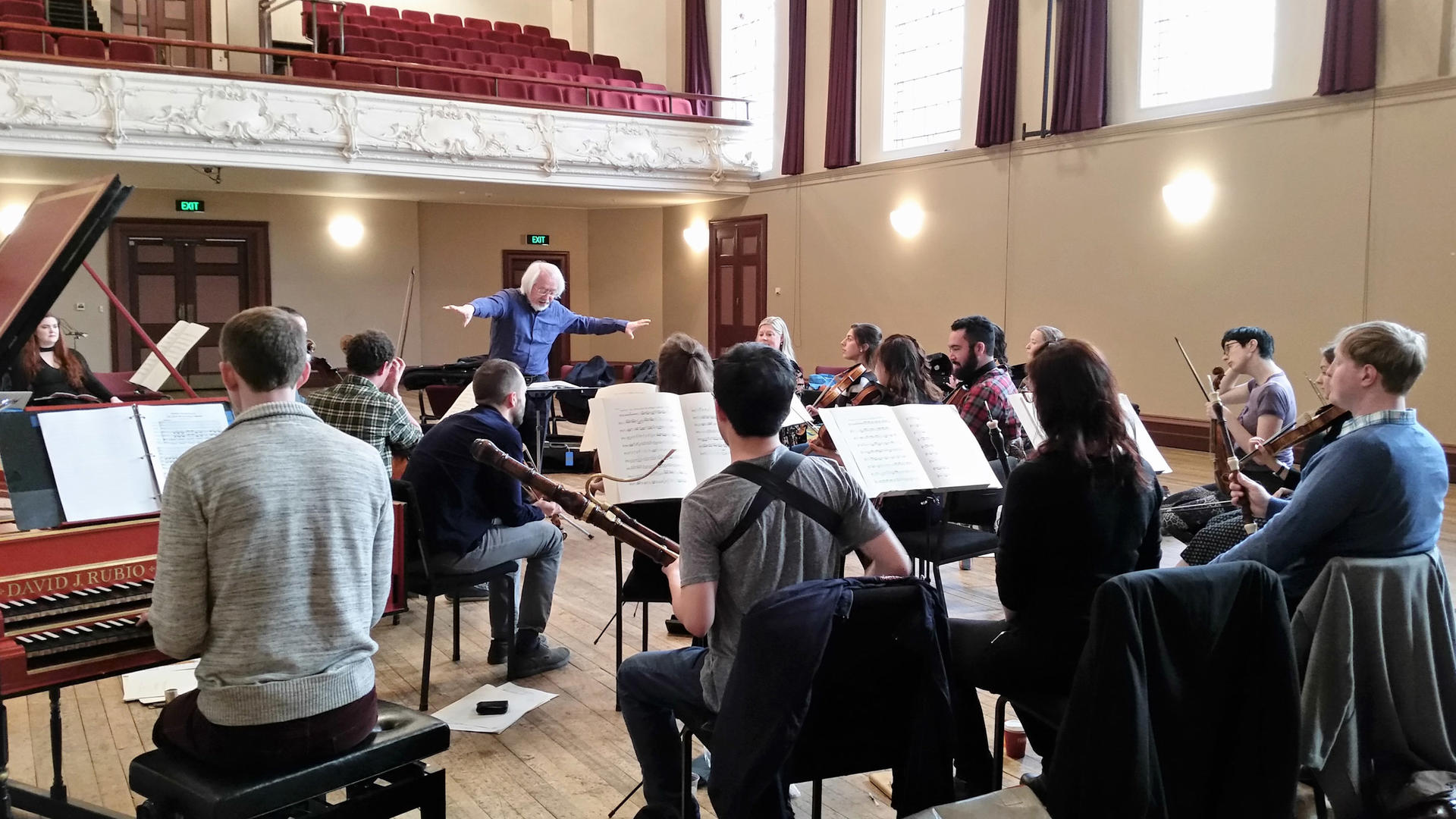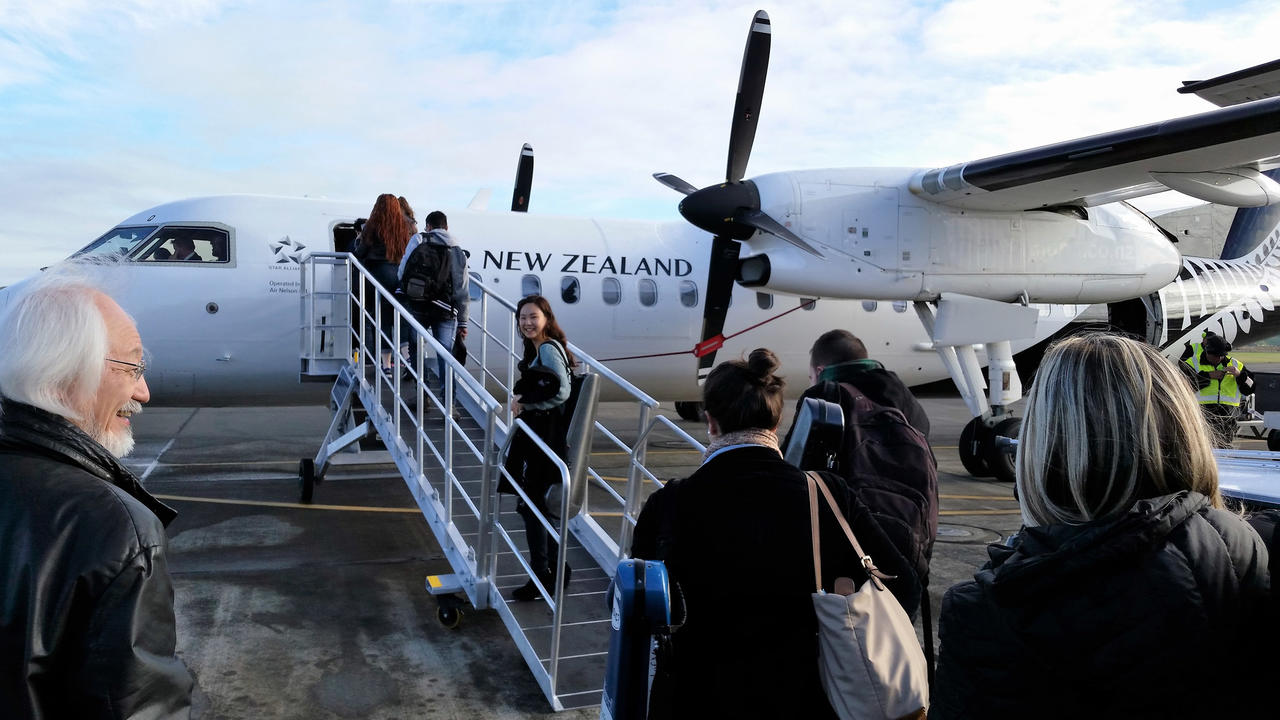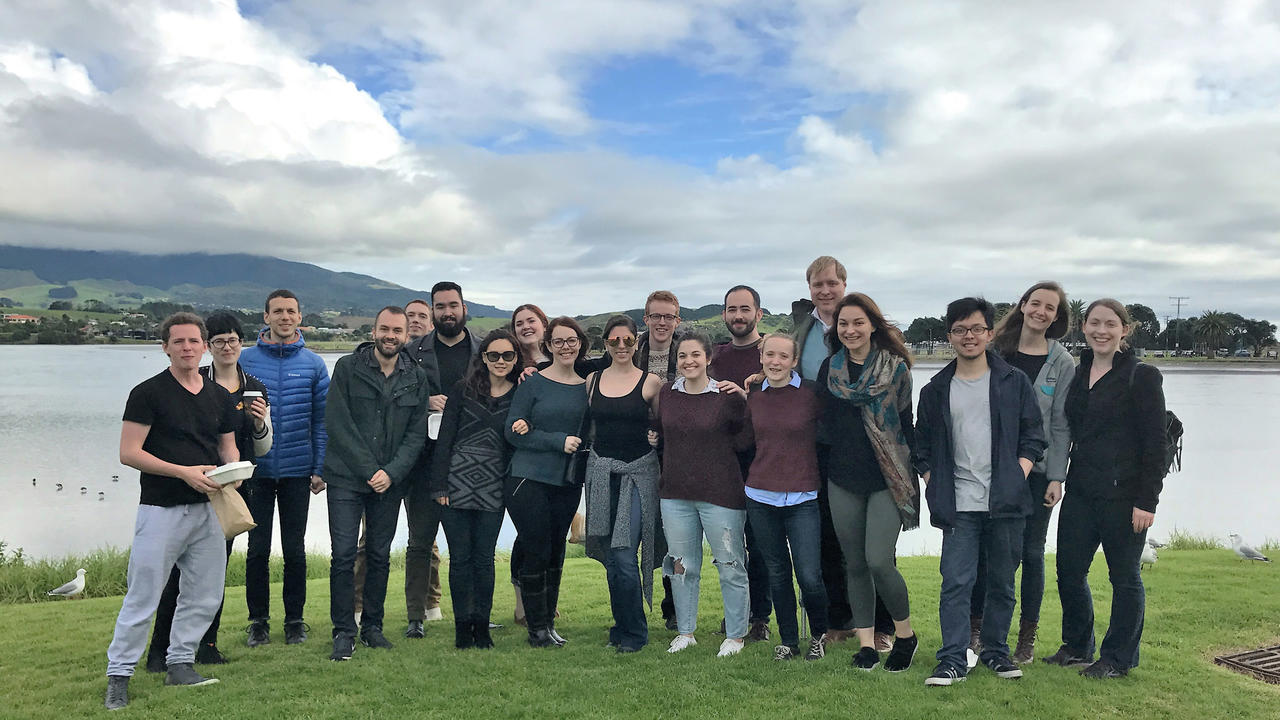
A few days after Commencement, I had the privilege to lead 20 members of Juilliard415 on an extended tour to the beguiling country of New Zealand, marking the first time that an ensemble from Juilliard has performed in that country. The great Bach specialist Masaaki Suzuki was the conductor for this huge undertaking—10 concerts in 10 cities in 20 days—which was made possible by the generous support of board member and New Zealand native Sarah Billinghurst Solomon.
The first thing we learned about New Zealand is that it is very, very far away. (You get there two days after you leave!) But once we finally arrived, we were met by warm crowds who seemed genuinely grateful that we made the journey. While you cannot say that there is a huge amount of competition for media in a country in which sheep outnumber people by a truly astonishing margin (human creatures: four million; ovine creatures: 40 million), we seemed to get a lot of attention, with several radio and newspaper interviews and a huge banner announcing our concert on the facade of the Auckland Town Hall. The performance there, along with a later concert in Wellington, were both broadcast live on Radio New Zealand.

Ten concerts in 20 days. That’s a lot of travel, which meant sleeping in a different bed almost every night. It also meant a lot of opportunities to take in the magnificent physical beauty of New Zealand. We saw the country basically from the top to the bottom, traveling by bus (they drive on the left in that part of the world; harrowing!) and plane (the little regional airports are like a throwback to a gentler time; no security!) It also meant encountering a lot of people along the way. Our concert in Auckland was preceded by a really touching event that allowed blind and low-vision patrons to interact with the musicians. This began with a handful of our players describing the look, sound, and function of their instruments, after which these audience members had a chance to touch the instruments to get a better sense of what they were hearing. This was a new experience for all of us—a truly lovely idea and a creative type of outreach that we were honored to help facilitate. We spent three days (same bed!) in the seaside town of Nelson participating in a workshop in which our students were stand partners with musicians ranging from undergrads to professionals in the New Zealand Symphony Orchestra. Most had very little experience with period instruments and only a few had ever played in a period ensemble. The results far surpassed our expectations, due in large part to Masaaki’s excellent teaching and to the dedication of our students.
Tours, especially long and intense ones like this, always become their own worlds, deeply personal yet completely communal at the same time.
Our antipodean adventure came to a conclusion with a sold-out and completely electric performance in the lovely little city of Dunedin. I have never seen our students smile as much during a concert as they did that night. Masaaki was his usual magnificent self, only more so. He reminds me of the old Lexus motto: the relentless pursuit of perfection. Even after so many performances, he used each dress rehearsal time to its fullest, drawing out new details, honing technical issues, and spreading his unique style of exacting good will, always with honesty and integrity. At the end of the performance, he said something I have never heard him say in all the years that we have worked together: “That was perfect!”

Tours, especially long and intense ones like this, always become their own worlds, deeply personal yet completely communal at the same time. I gave some remarks at our final post-concert reception in which I mentioned that audiences at an orchestra concert probably see a group of anonymous people. But those of us who know those people see individuals. And over the course of those three intense weeks on the other side of the world, it was an honor to watch these individuals grow as artists, be challenged, bond with each other, and become more whole people.
Benjamin Sosland (MM ’03, DMA ’08, voice), the administrative director of Juilliard Historical Performance, is also the assistant dean for the Kovner Fellowships and a member of the college faculty.